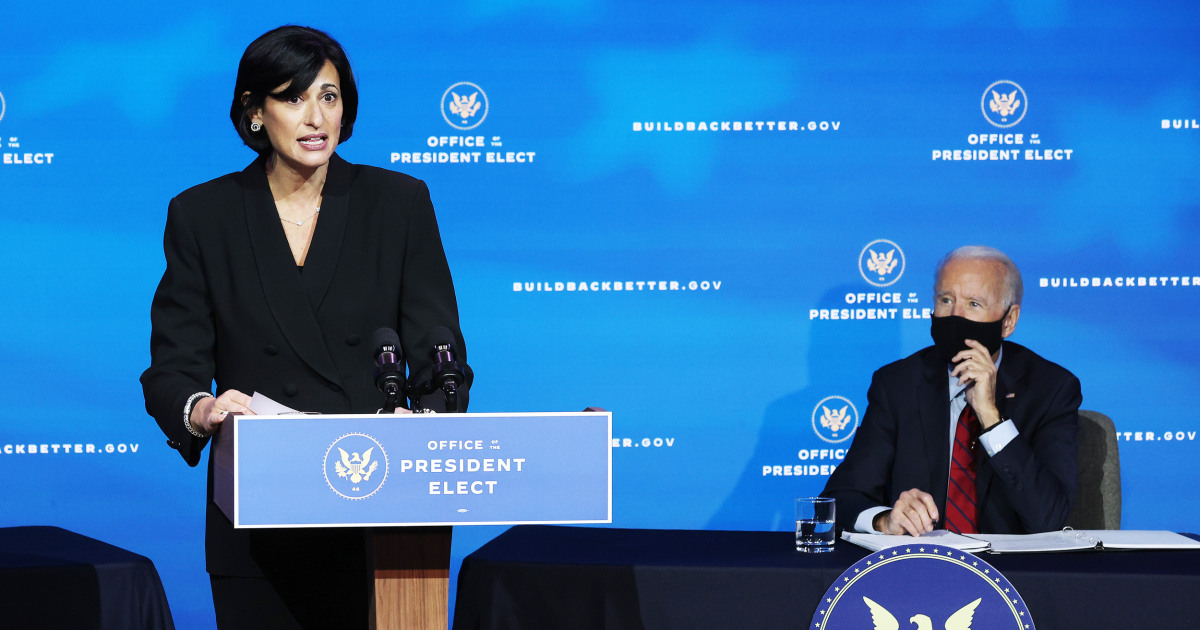
The Centers for Disease Control and Prevention (which each of us led at different points over the past 30 years) has always been one of our most trusted government agencies. It earned the public’s trust by being the gold standard for public health, a domestic and international authority driven by science, and by working 24/7 to keep Americans safe — as well as, in part, through its performance during past domestic and global outbreaks of diseases.
Yet today, public trust in the CDC is diminished; many Americans see the agency as vulnerable to partisan influence. This is especially harmful at a time when building and maintaining the public’s trust is integral to saving lives and mitigating the ravages of Covid-19.
This is not an indictment of the many brilliant and dedicated public servants who have worked to make this institution the premier public health organization on the planet or those who today continue to fight for the nation’s health — and to save lives — during the greatest public health crisis we have faced in a century. The attacks on the CDC, the marginalization of its role during this crisis and the politicization of its work are a stain on the perpetrators, not on our public health workforce.
Even so, the damage to the organization is significant; the reputation of today’s CDC is a shadow of what it once was.
The agency must assume its rightful role once again and drive the public health response and public communications during this pandemic.
After a new administration takes the helm in Washington next week, Dr. Rochelle Walensky — President-elect Joe Biden’s exceptional choice to lead the CDC — will do the same in Atlanta. She will arrive with the opportunity (and mandate, really) to re-establish trust with the rank and file at the CDC and fix what has been broken, to restore the public’s confidence in the CDC’s scientific objectivity and capabilities and to deploy the full power of the institution’s expertise in leading the response to this pandemic and beyond.
She must have the full support of the U.S. government to assess the processes, structures and funding issues at the CDC to succeed at this mission.
Her work must start at the CDC itself, where morale has been devastated because thousands of public servants in Atlanta and around the world have spent the past year being maligned and undermined at every turn, serving as punching bags for all that has gone wrong during this pandemic. CDC staff members need to be heard; they need to trust that this is, indeed, a new day for the agency.
The agency Walensky is about to lead must assume its rightful role once again and drive the public health response and public communications during this pandemic. Frequent CDC briefings about the coming course of the pandemic by high-level and well-informed subject experts, instead of politicians, should become the norm so the American people receive truthful, accurate and up-to-date information that is not contaminated by party or politics. During our tenures in both Republican and Democratic administrations, we experienced firsthand how active communication about public health matters serves this nation well and is critically important during any public health emergency.
The reputation of today’s CDC is a shadow of what it once was.
The CDC also needs a thorough internal and external review to determine what must change to rebuild trust with the public, to fully modernize the institution and the sciences that underpin it and to ensure that the scale of investment is commensurate with the responsibilities the agency embraces.
The erosion of trust will not be repaired overnight, and a transparent process to identify the failures that brought us to this point, as well as the needed corrective actions to move us forward, cannot begin soon enough. In particular, the missteps during the earliest days of the pandemic that led to a delay in availability of accurate tests for SARS-CoV-2 must be thoroughly addressed before the next crisis arises.
Re-establishing the firewall between politics and science must begin immediately so the integrity of the CDC is never again undermined. The fault lines that existed even before the pandemic have been glaringly revealed: Each incoming administration and Congress has brought its own priorities and agenda; as a result, CDC funding has always been inconsistent, unpredictable and deeply fragmented.
In addition, since the terrorist attacks of Sept. 11, 2001, public health funding has been trapped in recurrent cycles of emergency expansion followed by rapid contraction once the most recent crisis is over. We have watched this with dismay over the past two decades with the anthrax attacks, the SARS outbreak, the H5N1 bird flu threat, the H1N1 pandemic, the Ebola epidemic and the Zika outbreak.
The Covid-19 pandemic must usher in the end of this counterproductive cycle. We need sustained — and much larger — public health preparedness funding for the CDC, and we must greatly strengthen its connections with and support of state, local, territorial and tribal public health partners across our country to ensure that we can save not only lives but also our economy when threats emerge. Recently, the House of Representatives began to address this problem by exempting some public health funding (at least during this pandemic) from requiring budget cuts in other areas, a rule known as PAYGO. That is a good first step; we hope that the new Congress also will identify other means to secure long-term investments in our nation’s public health and biosecurity.
Although the urgency and needs of this pandemic present Dr. Walensky and her team at the CDC with both their primary challenge and a greater one than any of us experienced during our tenures, we are confident that the strength of the CDC — and the outstanding scientists and public health professionals within it and across the whole public health system — will meet this moment, to the benefit of the entire world. Let us make sure they have the support and freedom to do so.
Source: | This article originally belongs to Nbcnews.com










